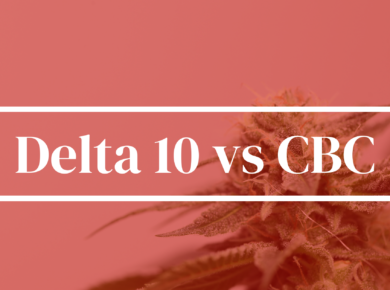Growing cannabis and hemp is like any other plant. Cannabis requires different nutrients at each stage of it’s growth cycle.
What Nutrients Should I Use for Young Plants?
As a young plant (vegetative stage), additional Nitrogen is consumed. Nitrogen is used to grow stalks, roots, leaves and gain height and width.
Young plants benefit from a NPK 6-4-4 fertilizer. This can be used for early stage growth up to the pre-flowering stage (between 4-8 weeks).

[PRO TIP] The amount of fertilizer depends on its format (liquid or solid) and instructions. Most liquid fertilizers recommend re-applying one a week. Most solid fertilizers can be left for a month or so with no maintenance. Their nutrients dissolve and are taken in slowly as the plant needs it.
Join the more than 26,000 industry professionals using Kush.com each day >>
What Nutrients Should I Use for Pre-Flowering Plants?
Once pre-flowering begins, switch over to a more Phosphorus rich feed. This allows the plant to produce maximum flowers. A NPK of 2-8-4 would be an example of a Phosphorus rich feed.
This will give the plant the ideal amount of Phosphorus it needs and result in less stressed plants. Happy, healthy plants will produce full and dense flowers.
Magnesium is also very important. Increased magnesium is used during photosynthese. Without sufficient Magnesium, the plant will not be able to produce as much energy as it needs. This will show signs by yellowing droopy leaves.
Plants also use a fair amount of trace minerals such as calcium, iron, copper, manganese, zinc, carbon, oxygen, sulfur, hydrogen, etc. Trace minerals are essential for plant growth and function, yet aren’t recommended to be reapplied though fertilizers. Their density and commonality make it unnecessary.
These minerals are what allow the plant to remain healthy and carry out it’s daily functions such as energy transfer, cell wall stability, photosynthesis, and regulate all other interior systems.
Metals like iron, zinc, carbon, manganese, etc. are slow to break down and exist organically in most soil mediums. If you test your soil and find no trace elements they can be purchased and applied as well. Most likely, you will not have to reapply these for quite some time.

Also the commonality of minerals such as calcium, carbon, hydrogen, and oxygen in watering systems and air is another reason why they do not have to be applied through an outside source. They exist in most watering systems and the air around us naturally.
[PRO TIP] You can keep track of the nutrient content in your soil with the use of a nutrient NPK test kit. These are relatively inexpensive and can be purchased online or from a local nursery or garden store in your area.
What Nutrients are Best for Hydroponic Grows?
In hydroponic systems, you have greater control over your growing space and plants. However, the application of feed/fertilizers have be be constantly monitored and applied. This is due to the soilless medium the plants grow it.
The same goes for what minerals the plants need at certain times (young growth & flowering). Trace minerals will have to be applied into the solution as well. Luckily most hydroponic mineral kits have included trace and macro minerals together. So all you have to do is measure out the given solution, dilute it within the watering system and apply it to your crop.
Example: If the ratio for mixing is 1 oz of fertilizer per gallon of water, then you will use 50 oz of fertilizer per 50 gallon water tank.
[PRO TIP] Be sure to follow the labels and instructions on your fertilizer to avoid harming or chemically burning your plants.
[PRO TIP] In hydroponic applications it’s recommended that a pH leveling kit (pH up and down) is used along size all liquid fertilizers. This will insure your plants remain happy, healthy, and the growing medium remains balanced.





